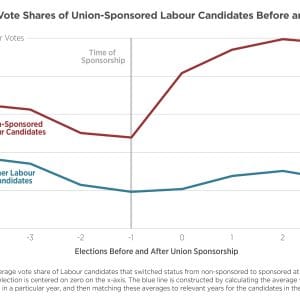- About
- Network
- Research Initiatives
- Big Data Initiative
- Chicago Experiments Initiative
- Health Economics Initiative
- Industrial Organization Initiative
- International Economics and Economic Geography Initiative
- Macroeconomic Research Initiative
- Political Economics Initiative
- Price Theory Initiative
- Public Economics Initiative
- Ronzetti Initiative for the Study of Labor Markets
- Socioeconomic Inequalities Initiative
- Research Initiatives
- Scholars
- Research
- Information and Macroeconomic Expectations: Global EvidenceFrancesco D’Acunto and Michael WeberCarbon BurdenLubos Pastor, Robert F. Stambaugh, and Lucian A. TaylorCommitment and Randomization in CommunicationEmir Kamenica and Xiao Lin
- Events
Upcoming Events
- Insights
BFI Videos
BFI Youtube Channel
- News











